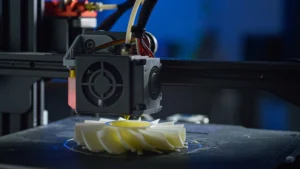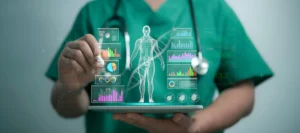Tropical diseases are a constant concern in much of the world, requiring coordination among authorities, researchers and healthcare agents to contain and mitigate their consequences.
These diseases are diagnosed in immunological test laboratories that are not always available in remote regions of the planet, creating demands for innovation in the sector.
According to the humanitarian organization Doctors Without Borders (MSF), approximately 500 thousand people die throughout the world each year from tropical diseases , such as dengue, Chagas disease, yellow fever, leishmaniosis and malaria.
If we include all of the pathologies transmitted by insects, a common problem in tropical countries, the number of death reaches 1 million, according to World Health Organization data (WHO).
In Brazil, the fight against these diseases is still quite irregular. Some actions
have been effective, indicated by the 38% reduction in malaria cases in the country in 2019. But others have been insufficient, leading to a 488% increase in cases of dengue in the same year.
Why is it so difficult to stop and eradicate these diseases?
Immunological and PCR Tests with portable equipment: PodiTrodi
One of the problems is the centralization of resources, making it difficult for more locations and people to have access to effective diagnosis. In a country like Brazil, which has a heterogeneous healthcare system and large territorial size, many people do not have suitable access to healthcare services. Even where clinics are found, they often lack the resources and equipment needed to provide quality care, which is essential for detecting and mapping certain diseases.
To help to improve this situation, CERTI participated in the international cooperation project for the development of the Point of Care Diagnosis for Tropical Diseases (PodiTrodi), a portable device that provides fast diagnosis of infectious diseases in tropical environments.
Initially focused on detection of Chagas disease, the equipment was developed from 2011 to 2014, through the European-Brazil Cooperation Agreement on Science and Technology, with financing from the European Commission and Brazil’s National Council for Scientific and Technological Development (CNPq). The objective of the project was to develop portable diagnosis technology for locations without access to clinical analysis laboratories that can conduct immunological and PCR tests.
How does PodiTrodi work?
PodiTrodi is a device for conducting immune response and molecular tests in a single discardable cartridge.
Using technologies for real time PCR testing and an immunoassay strip for immune response testing, it can detect both the infectious agent – through the presence of its DNA / RNA – and the patient’s immunological reaction to the disease.
This dual detection strategy is very important, because at the beginning of an infection, there are usually higher concentrations of a microorganism in the sample, though not enough time has passed for the person afflicted to develop a immunological response.
With the evolution of the disease, the patient develops a immunological response detectable with immunoassay. Since the infectious agent may then be found in lower concentrations, or even disappear in chronic phases and in cure, the hybrid test provides complete coverage, because a single exam can detect the presence of the infectious agent and if the person had contact with the disease.
PodiTrodi as an innovative diagnostic solution
PodiTrodi is therefore a quite innovative device, because a single apparatus can conduct two types of tests – PCR and immune system response – and detect diseases both in their acute and chronic phases and after cure. The solution was initially dedicated to Chagas disease, but can also be used for other infectious diseases, like zika and dengue.
It is important to emphasize that the ability to conduct rapid hybrid tests can be used to detect various diseases, which makes it a solution suitable for Brazilian conditions, a country of continental size with needs for specialized medical care in many remote regions.
The cooperation agreement reached its objective to generate a conceptual prototype and also served as a base for the development of various rapid diagnosis solutions, particularly for immune system response with reagent strips.
In relation to the RT-PCR tests, there are still challenges to be overcome, such as developing compact solutions to make the entire process of preparing the sample portable at an accessible price. Another factor to be resolved for the RT-PCR is the development of reagents that remain valid without refrigeration and can be transported and stored in remote locations.
Advantages of PodiTrodi
The great advantage of this immune response and molecular test system is the speed and agility with which the results are obtained. In addition to facilitating detection of potentially epidemic diseases, it is an essential tool for assisting diagnosis, and proper treatment and handling of patients.
Moreover, it is portable and can be transported by healthcare agents and family medical professionals during their field work, especially at locations far from points of care or that have been affected by a certain outbreak.
This is essential to bringing quality care to people who live in regions of risk, helping the precocious diagnosis of disease, including in the asymptomatic phase, when the chances of cure are much higher.
Another important concept behind the solution is georeferencing. Upon conducting the test, the PodiTrodi records the geographic coordinates of the location. The information can thus be sent to the regional epidemiological management system, helping to identify an outbreak, and actions to control the disease.
For example, in locations where an outbreak of zika is found, a disease carried by the mosquito Aedes aegypti, measures can be taken to eliminate this vector with visits and preventive actions among the population to contain new cases.
For all these reasons, the PodiTrodi is a concept for a solution designed for public healthcare clinics and the more than 40 thousand organized groups in Brazil dedicated to health and family medical care.
Do you want to learn more about the project and the immunological and PCR tests to improve more accuracy?
Contact CERTI for more information!







